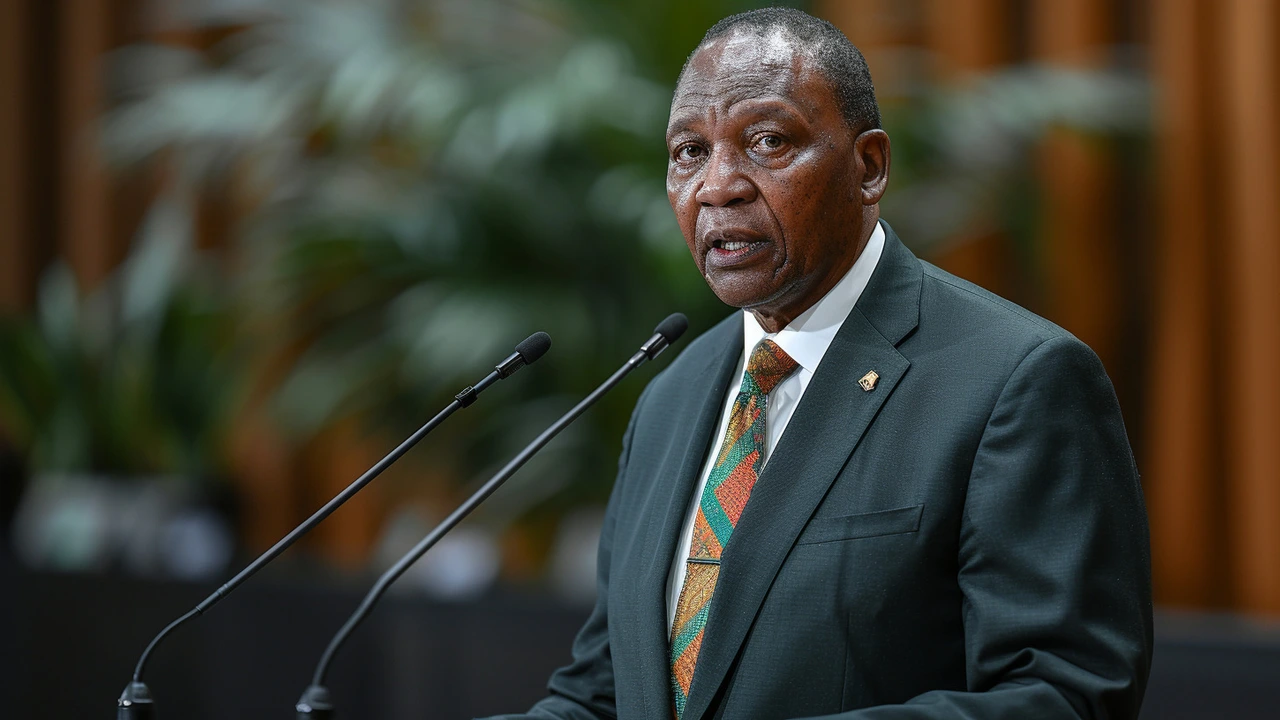President Ramaphosa Honors Justice Yvonne Mokgoro's Legacy as Constitutional Court Pioneer
 May, 23 2024
May, 23 2024
The Legacy of Justice Yvonne Mokgoro
South Africa recently bid farewell to one of its most distinguished legal minds, as President Cyril Ramaphosa paid tribute to former Constitutional Court Justice Yvonne Mokgoro. Mokgoro, who passed away on May 9 at the age of 73, left an indelible mark on the country's judicial landscape. Her life and career were celebrated as she was laid to rest in Johannesburg, with Ramaphosa leading the chorus of praise for her multifaceted contributions to justice and social equity.
A Pioneering Journey
Justice Yvonne Mokgoro's journey is nothing short of inspiring. Born in 1947 amidst the oppressive atmosphere of apartheid, she defied numerous societal barriers. Her academic prowess shone early, leading to her eventual appointment as the first black woman on South Africa's Constitutional Court in 1994. This historic appointment came at a critical juncture when the nation was transitioning to a democratic regime, making her role not only significant but symbolic.
Her early years were characterized by resilience against the backdrop of a racially segregated society. President Ramaphosa recounted her days as a student activist, where she was deeply involved with the African National Congress. Her activism during the turbulent times of apartheid laid the foundation for her later achievements in law. Much of her legal work focused on human rights, a testament to her commitment to justice and equity.
President Ramaphosa highlighted that Mokgoro's life was a reflection of the multifaceted challenges faced by black women under apartheid. Not only did she grapple with racial discrimination, but she also faced gender and class prejudices. Yet, she turned these obstacles into stepping stones, emerging as a beacon of hope and a stalwart for principled activism.
From Customary Law to Constitutional Bench
Mokgoro's groundbreaking research on customary law cemented her reputation as a scholar and advocate. Her work sought to balance traditional practices with contemporary legal standards, emphasizing respect for human dignity. This approach was particularly crucial in the context of South Africa, where customary laws play a significant role in the social fabric.
Her tenure at the Constitutional Court was marked by rulings that underscored her commitment to upholding human rights, with an acute focus on social justice. She often highlighted the principle of ubuntu, a Nguni Bantu term meaning 'humanity.' Ubuntu, for Mokgoro, was not merely a cultural concept but a judicial principle intertwined with the rights to life, dignity, and equality.
As Ramaphosa noted in his tribute, Justice Mokgoro's emphasis on ubuntu and human dignity created a jurisprudence that resonated beyond the courtroom. It reflected a vision of justice that was inclusive, compassionate, and deeply rooted in the social realities of South Africa.
Post-Retirement Contributions
Even after her retirement from the Constitutional Court in 2009, Mokgoro's commitment to justice and public service remained unshaken. Between 2016 and 2020, she chaired the United Nations' Internal Justice Council. In this role, she worked tirelessly to ensure that the UN's justice system maintained its independence, professionalism, and accountability.
Her work with the UN symbolized her broader vision of justice, one not confined by national borders but encompassing global principles of fairness and equity. Her leadership in this international arena further solidified her legacy as a champion of justice, demonstrating her versatility and dedication to the rule of law.
Reflecting on a Life Well-Lived
As South Africa reflects on the life and legacy of Justice Yvonne Mokgoro, it is clear that her contributions extend far beyond her judicial rulings. She was a trailblazer who shattered glass ceilings and set precedents for future generations of legal practitioners and activists. Her life story is a powerful narrative of resilience, intellect, and unwavering commitment to social justice.
President Ramaphosa's tribute encapsulated the essence of what Mokgoro stood for—principled activism, steadfastness, and a profound sense of duty towards creating a just society. She has left behind a legacy that current and future leaders will draw inspiration from, reminding us all of the enduring power of justice and equality.